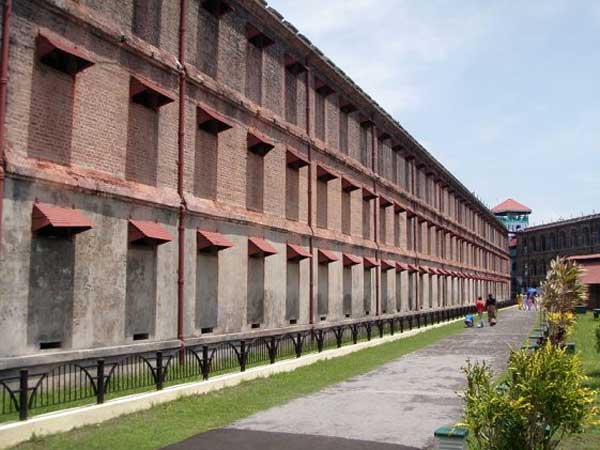
Corruption: Should some accused be sent to the Andamans?
Of
late,
several
prominent
politicians
have
been
lodged
at
the
Tihar
Jail
in
New
Delhi.
The
list
of
VIP
inmates
in
2011
and
2012
includes
former
union
minister
A
Raja,
Indian
Olympic
Association
president
Suresh
Kalmadi,
DMK
member
of
Rajya
Sabha
M
Kanimozhi,
Jharkhand's
ex-Chief
Minister
Madhu
Koda
and
cash-for-votes
scam
accused
Amar
Singh.

Spread over 180 acres, Tihar is the biggest prison in the whole of Asia. It is estimated that over 50,000 persons, mostly under-trials, pass through it in a year. Yet whenever high profile personalities are charged with a crime, many of them usually end up in Tihar though it is already packed to double its capacity.
Some are remanded to the central prisons in various states. With there being no foreseeable end to corruption in India, a day may come when Tihar and the central jails may not be enough to accommodate all the accused.
The above scenario is not too far off in the future given the number of scams and frauds perpetrated everyday in the country. The authorities may well have to think then of jailing the culprits in the Andaman and Nicobar islands or Lakshadweep.
During the colonial era, the British rulers dealt with political prisoners in this way. Revolutionaries like Veer Savarkar and his brother Babarao, Batukeshwar Dutt, Upendra Nath Banerjee and Jatish Chandra Pal were all exiled to the Andamans.
Apart from the aforementioned freedom fighters, many others like Nand Gopal, Sohan Singh, Bhai Parmanand, Barindra Kumar Ghose, vaman Rao Joshi, Maulana Ahmadullah, Yogendra Shukla etc were sent to the Cellular Jail in Port Blair.
Dr Diwan Singh Kalepani was also imprisoned there for six months. The suffix 'kalepani' denotes his incarceration in kala pani (black water in Hindi), a term that has over the years become synonymous with the Cellular Jail.
Incidentally, Diwan Singh used to work in the Andamans as a teacher. When the Japanese occupied the islands in 1942, they asked him to make a speech against the Britishers on the Penang Radio but he refused. Diwan Singh and other members of the Punjabi Sabha were later put to death.
When the Cellular Jail was partially demolished after the nation gained independence, those who had been interned there demanded that the infamous prison be preserved to serve as a reminder of the shocking atrocities committed on them by the British or the Japanese.
Accordingly, the Cellular Jail was converted into a national memorial. Within the same premises is located the 500-bed Govind Ballabh Pant Hospital, set up in 1963, thanks to which the local population benefits much at present.
Should a prison in the remote archipelago be established again to house corrupt persons and criminals from across the nation? There may be no such need right now but perhaps it could be considered in times to come. Anyway, it is for the government to decide. One thing is certain, the negative connotations attached to 'kala pani' will prove to be the stumbling block.


 Click it and Unblock the Notifications
Click it and Unblock the Notifications






























